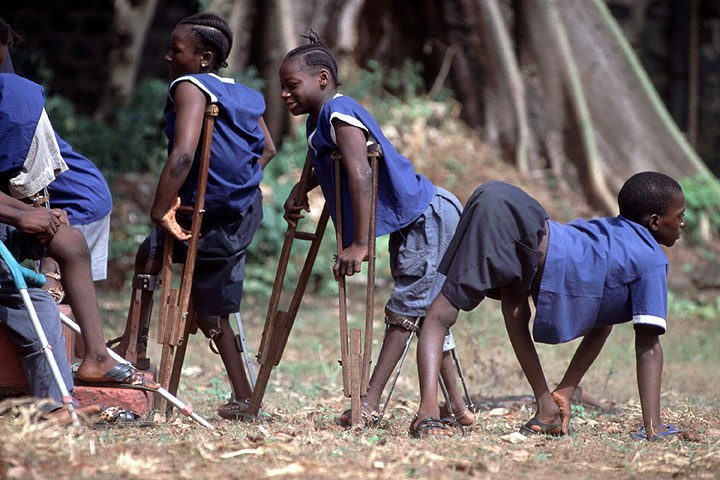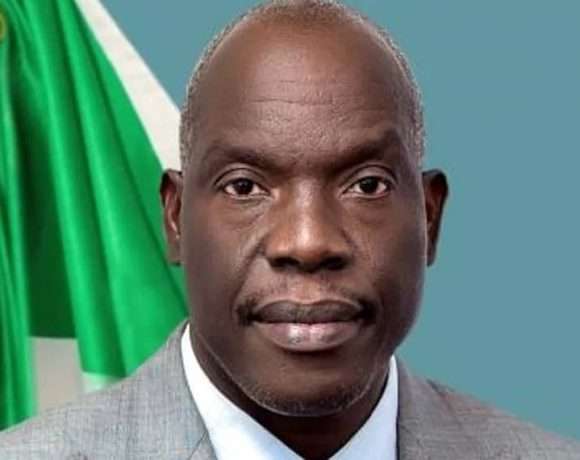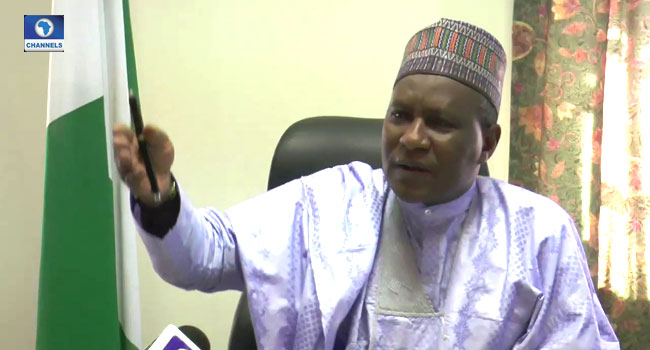Experts list ways to tackle current polio outbreak

The gains and achievements made by Nigeria in the fight against polio, a crippling disease in the last two years recently suffered a major setback following the announcement by the Minister of Health, Prof. Isaac Adewole of two new polio cases in Jejere and Gwoza Local Government Areas of Borno State.
The progress in the fight against polio in the country, dates back to July 24, 2014, when the last case of polio was reported in a 16 months old boy from Sumaila Local Government in Kano State. July 24, 2016 marks two years with no case of wild poliovirus in Nigeria.
But the current outbreak has dealt a blow on Nigeria’s hope of being certified polio-free by July 2017 by the World Health Organisation (WHO).
Despite the current set back, stakeholders still believe that Nigeria can still defeat polio like Ebola if there is the commitment from the government and its international partners including United Nations Children Fund (UNICEF), WHO, Rotary International, United States Centre for Disease Control (CDC) as well as key funders like the Bill Gates Foundation and the Dangote Foundation, among others.
Speaking at the weekend in Lagos, one of the stakeholders, Former Head, Immunology/Vaccinology Research, Nigerian Institute of Medical Research(NIMR), Yaba, Lagos, Dr. Adesina Adeiga, said, though he saw the outbreak coming because of the insecurity in the area, the federal government must as a matter of priority strengthen surveillance in the region.
“Government should immediately send vaccinators to the affected areas to vaccinate all the children and also monitor the people very well to curtail further spread of the virus. Vaccinators should look out for children hidden by their parents to prevent them from receiving the vaccine with the false believe that the vaccine is bad.
“Again, the government should also collaborate with the neighboring countries to prevent spread of the virus.”
He also recommended that the government should improve the nutrition of children in the area in order to boost their immunity and reduce their vulnerability to the virus.
Besides improving their nutritional status, the researcher equally recommended that all children in the affected areas be deworm to boost the effectiveness of the vaccine.
He said, “The Department of Nutrition, Federal Ministry of Health and that of the affected state must work hand-in-hand in ensuring that they address the problem. And the communities where the cases where reported, must be part of the planning process and there should be adequate security for vaccinators.”
To further reduce spread of the virus in the region, Adeiga suggested that health education be promoted among the children.
On his part, Former Minister of State for Health, Dr. Ali Pate, urged parents in the region to bring out their children for immunization against the paralyzing disease, stating that polio vaccine has been used all over the world with over 10 billion doses without any problem.
Allaying the fears of parents in the area over the controversy of safety of the vaccine, Pate noted that the was no empirical evidence to say that the vaccine is not safe.
WHO Regional Director for Africa, Dr Matshidiso Moeti, said as an immediate priority, the Government of Nigeria is collaborating with WHO and other partners of the Global Polio Eradication Initiative to respond urgently and prevent more children from being paralyzed.
According to her, these steps include conducting large-scale immunization campaigns and strengthening surveillance systems that help catch the virus early. These activities are also being strengthened in neighboring countries.
She said, “We are deeply saddened by the news that two Nigerian children have been paralyzed by polio. The Government has made significant strides to stop this paralyzing disease in recent years. The overriding priority now is to rapidly immunize all children around the affected area and ensure that no other children succumb to this terrible disease.”








